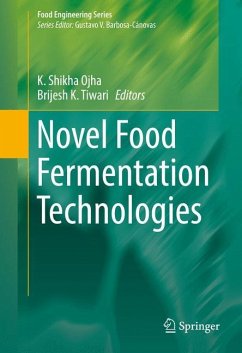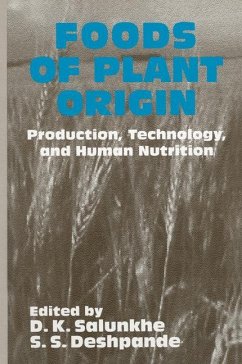
Thermal Processing of Packaged Foods
Versandkostenfrei!
Versandfertig in 6-10 Tagen
127,99 €
inkl. MwSt.

PAYBACK Punkte
64 °P sammeln!
1. 1. Thermal Processing Principles 1. 1. 1. ThermalProcessing A generation ago the title of this book would have contained such terms as canning, bottling, sterilization and heat preservation; however, with the passage of time it has become necessary to use a more general title. The term thermal processing is used here in a general sense and relates to the determination of heating conditions required to produce microbiologically safe products of acce- able eating quality. It conveys the essential point that this book is concerned with the heating and cooling of packaged food products. The onl...
1. 1. Thermal Processing Principles 1. 1. 1. ThermalProcessing A generation ago the title of this book would have contained such terms as canning, bottling, sterilization and heat preservation; however, with the passage of time it has become necessary to use a more general title. The term thermal processing is used here in a general sense and relates to the determination of heating conditions required to produce microbiologically safe products of acce- able eating quality. It conveys the essential point that this book is concerned with the heating and cooling of packaged food products. The only attempt to produce a generic title has been due to Bitting (1937), who used the term appertizing, after the process developed and commercialized by Nicholas Appert (1810) to describe the canning and bottling process. Despite the need for a generic term, rather surprisingly, this has never been used to any great extent in the technical press. The phrase packaged foods is also used in a general sense, and we shall be concerned with a variety of packaging materials, not just tin-plate, aluminum and glass, but also rigid and semi-rigid plastic materials formed into the shape of cans, pouches and bottles. The products known originally as canned or bottled products are now referred to as heat-preserved foods or thermally processed foods. Thermal Processing is part of a much wider ?eld-that of industrial sterilization-whichincludesmedicalandpharmaceutical applications. Thosec- cerned with these subjects will ?nd much of the information in this book will apply directly to their technologies.












